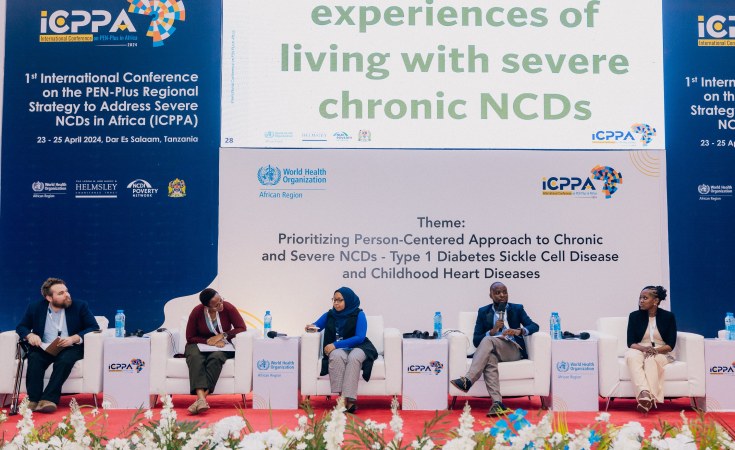A team of doctors and nurses from Rwinkwavu Hospital and Partners in Health collected blood and urine samples to study the occurrence of chronic kidney disease in 1,268 patients with hypertension, 1,189 with HIV, and 582 with other non-communicable diseases (NCDs) across two phases. The study revealed that more than 300 patients out of 3,039 tested positive for chronic kidney disease.
These results, according to doctors, highlight the need for increased awareness and screening for chronic kidney disease among patients with other non-communicable diseases and HIV, and also among those without any pre-existing conditions.
Also read: World Kidney Day: Rwanda highlights equitable access to kidney healthcare
In 2023, a 28-year-old patient (names withheld) began experiencing swelling, a sharp pain in the chest, and a decline in energy and appetite. Realising the urgency, he sought help promptly, only to discover he had developed chronic kidney disease due to undetected hypertension. Presently, he is undergoing dialysis and awaits a kidney transplant from a familial donor.
"I used to transport people on bicycles daily. In 2023, I started realising my feet and ankles were swelling, started getting shortness of breath, and went to the hospital. They found that I needed quick dialysis. The insurance paid for 18 appointments with the doctor, but it ended before I recovered. Partners in Health is now taking care of my treatment. I am grateful for them. I call upon everyone to take care of their kidneys and also practice health check-ups because the treatment is very expensive," he said.
He is among other patients whose kidney issues were detected using an applied methodology by the hospital, which involved orientation training for screening staff, creating a mobile team for hospital and health centre screening, and training lab technicians for creatinine testing.
Also read: Mother appeals for extended kidney treatment under medical insurance
Dr Phoebe Mwiseneza, Rwinkwavu Hospital Director General, said: "We conducted a random screening to see the prevalence of kidney disease and found out that people in villages have the disease unknowingly; many of them don't show any symptoms until the condition is advanced. Some of those who tested positive have died because, by the time of the screening, they were at the end stage of the disease, very late for the hospital to help."
She suggested that to address the issue of chronic kidney disease, emphasis should be put on increasing kidney health awareness, extending screenings, improving care quality, leveraging waiting time between diagnosis and transplant initiation, and reviewing insurance policies to cover more dialysis sessions before transplant.
Areas of Rwinkwavu, Kabarondo, Murama, Nyamirama, Mwili, and Kabare were covered in the screening of chronic kidney disease at health centres.
Costly treatment
Nephrologist Etienne Ntabanganyimana, a doctor with Partners in Health, shed light on the importance of protecting one's kidneys because if the kidneys get damaged, the cost of treatment can be unaffordable.
He said: "Kidney disease treatment is expensive; for example, a patient on dialysis treatment, which is using a machine to filter their blood, costs between Rwf 75,000 and Rwf 94,500 once, and a patient is required to receive the treatment 12 times a month, plus other prescriptions to increase iron, most of which are also prescribed to their daily doses of hypertension or other diseases. It is roughly over Rwf 1 million monthly for the treatment."
Ntabanganyimana said kidney disease is easily preventable. He said one should adopt a healthy lifestyle, including regular exercise and a balanced diet low in salt and sugar, stay hydrated, avoid smoking, traditional medicine, and taking medication that is not doctor recommended.
Also read: Cancer, kidney transplant services to be covered under Mutuelle de Santé
The Ministry of Health announced that effective April 1, 2024, all hospital patients will receive a reduced cost of kidney dialysis from Rwf160,000 to Rwf75,000.
Rwanda has eight kidney dialysis centres: King Faisal Hospital, CHUK, CHUB, Rwanda Military Hospital, Rwamagana Hospital, Gihundwe Hospital, Gisenyi Hospital, and Kigali Dialysis Center - Africa Healthcare Network.
According to the National Center for Health, RBC, 10 per cent of Rwandans could have severe kidney disease, with approximately 40 per cent having a treatable and curable form-- Rwandans between 40 and 50 years of age are more likely to be affected.


